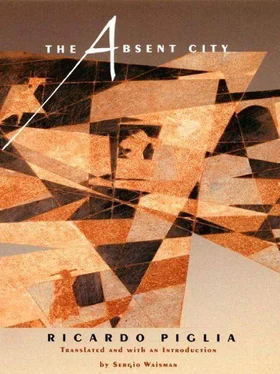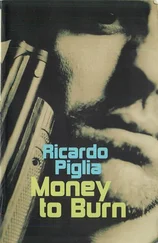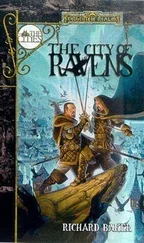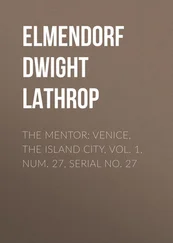“That is why I like how Richter infiltrated the Argentine State, he infiltrated his own paranoid imagination into Perón’s paranoid imagination by selling him the secret of the atom bomb. Only the secret, because the bomb never existed — only the secret, which, since it was a secret, could not be revealed. Of course, now, after years and years of systematic torture, of concentration camps designed to make those who have repented perform informational duties, they have won everywhere and can no longer be infiltrated, and the only thing that can be done is to create a white node and start over again. There is nothing left, nothing at all, just us, to resist — my mother and I, on this island — and Macedonio’s machine. It has been fifteen years since the Berlin Wall fell, and the only thing left is the machine, and the machine’s memory. There is nothing else, do you understand what I am saying, young man?” the Russian asked. “Nothing, just the stubble, the dry plains, the marks from the frost. That is why they want to deactivate her.
“At first, when they realized they could not just ignore her, when it became known that even Borges’s stories came from Macedonio’s machine, and that there were new versions going around about what had happened with the Islas Malvinas, they decided to take her to the Museum, to invent a Museum for her. They bought the building from the RCO and placed her there, on exhibit, in a special gallery, to see if they could negate her, convert her into what is known as a museum piece, a dead world, but the stories were reproduced everywhere, they could not stop her, there were stories and stories and more stories. Do you know how it all began? I will tell you. It always begins the same way, the narrator is sitting down, like I am, on a wicker chair, he rocks back and forth, looking out at the flowing river, it has always been like this, from the beginning, there is someone on the other side waiting, someone who wants to know what happens next. I had a small workshop in Azul around that time, I had lost my position at the Astronomical Observatory in La Plata for political reasons and had installed a workshop to repair radio and television sets. I was already carrying out my investigations, at night, I had begun to combine certain formulas together, to do some calculations, nothing too specific, around the time when Gödel’s and Tarski’s hypotheses first began to be disseminated. I applied them to a radio receiver, I was unable to build a transmitter, not at that point, just a recorder, my closet was full of tapes, recorded voices, lyrics, I was not able to transmit, only to capture, from the ether, waves, memories. I insist that at this point Gödel’s work had just appeared, around the same time as Tauski’s essay, I was in contact with the Rodríguez Bookstore in Buenos Aires, and I would get the latest scientific and philosophical books and journals every two months, in German, in English. I would work on my investigations at night and open up the electrical repair shop in the morning, until one day this man appears, a poet and a philosopher, I should say, he came to speak with me because everyone knows everything in small towns and he had been told that there was a European mathematician, he had come to spend some time at the small Arteaga farm, which was nearby, and was told that there was a German, because everyone always thought that I was German or Russian, and he wanted to meet me. That is how everything began. He had started before, actually, with other kinds of experiments, but along the same line.
“I remember a friend of mine, Gabriel del Mazo, who knew him from when they were young. I remember hearing him say that one day he was in the living room in Macedonio’s house, at 2120 Piedad Alley, parallel to Av. Bartolomé Mitre. It was a big house that is still there, with a patio and a yard with grapevines. They used to meet there with Juan B. Justo and Cosme Mariño, the founders of the Socialist Party and the Anarchist Movement in Argentina, and Gabriel del Mazo remembered that Macedonio was still single and that, one day, he heard the strumming of chords on a guitar ceaselessly from the room next door, the strumming of the chords, Del Mazo said, keeping rhythm in long intervals with other chords, and others, and others and with nothing else. I was intrigued, he says, so I go and ask him what he’s doing. And he told me something that I fear I won’t be able to recount exactly because my memory is not that great, Macedonio does, Del Mazo says, but it went something like this:
“ ‘That it is very interesting to look for the fundamental chords in music from which, perhaps, the entire universe is derived.’
“As if he were searching for a kind of primordial cell, the white node, the origin of forms and words, in the strumming of a guitar, in the melody that is repeated and repeated and repeated and never ends. A nucleus that is the origin of all voices and of all stories, a common language, as if it were recorded in the flight of birds, on the shells of tortoises, a unique form. You might say that, metaphysically, he did not distinguish dreams from reality. His theory consisted of not differentiating between being awake and dreaming. Despite the objective appearance of reality, he opposed it with dreams. He did not believe that dreams were an interruption of the real, but rather an entranceway. You awake from one dream and into another life. The intersection is always unexpected, life is a woven tapestry that interweaves one dream with another. He thought that the self, when it dreams, lives with so much intensity that it experiences as much as, if not more than, when it is awake and its eyes are wide open. All his work revolved around this node. He has written on the subject. That which is not defines the universe as much as that which is. Macedonio placed the possible within the realm of the real. That is why we started discussing Gödel’s hypotheses. A formal system cannot attest to its own cohesion. That was our point of departure, virtual reality, worlds of possibility. Gödel’s theorem and Alfred Tarski’s treatise on the borders of the universe, the outer limits. Macedonio had a very clear awareness of the intersection, the shore beyond which something else begins. That is why when his wife died, it also became necessary for him to leave his life behind, that he too abandon his life, as she had abandoned hers, as if he had gone to find her and she was on the other shore, on what Macedonio called the other shore. He became a shipwrecked man carrying a box with what he had managed to save from the water. He lived in an imaginary island, in complete loneliness, for years and years, like Robinson Crusoe.
“When his wife died he abandoned everything, his children, his legal title, even his writings on medicine and philosophy, and began to live without anything, almost like a vagrant on the road, with other anarchists who were hopping freight trains around that time, out in the country, under bridges, eating only soup, broth made from thistles, sparrow bones. Because he was an extremely ascetic person, no matter how much he had of something it was always more than what he needed, even if he did not have something it was still more than what he needed. He walked alone, played his guitar in small bars in the Province of Buenos Aires, carrying Elena’s soul, as he would say, in a small container usually used to carry mate. In other words, it contained the letters and the one photograph he had of her wrapped up in strips of cloth. He had discovered the existence of the verbal nuclei that keep remembrances alive, words they had used that brought all the pain back into his memory. He was removing them from his vocabulary, trying to suppress them, and establish a private language without any memories attached to it. A personal language, without memories, he wrote and spoke English and German, so he would mix the languages, in order to avoid even grazing the skin of the words he had used with Elena. Toward the end he spent hours sitting by himself, in the patio of a house that his friends had lent him, in the district of Azul, just thinking, drinking mate and looking out over the plains.
Читать дальше












